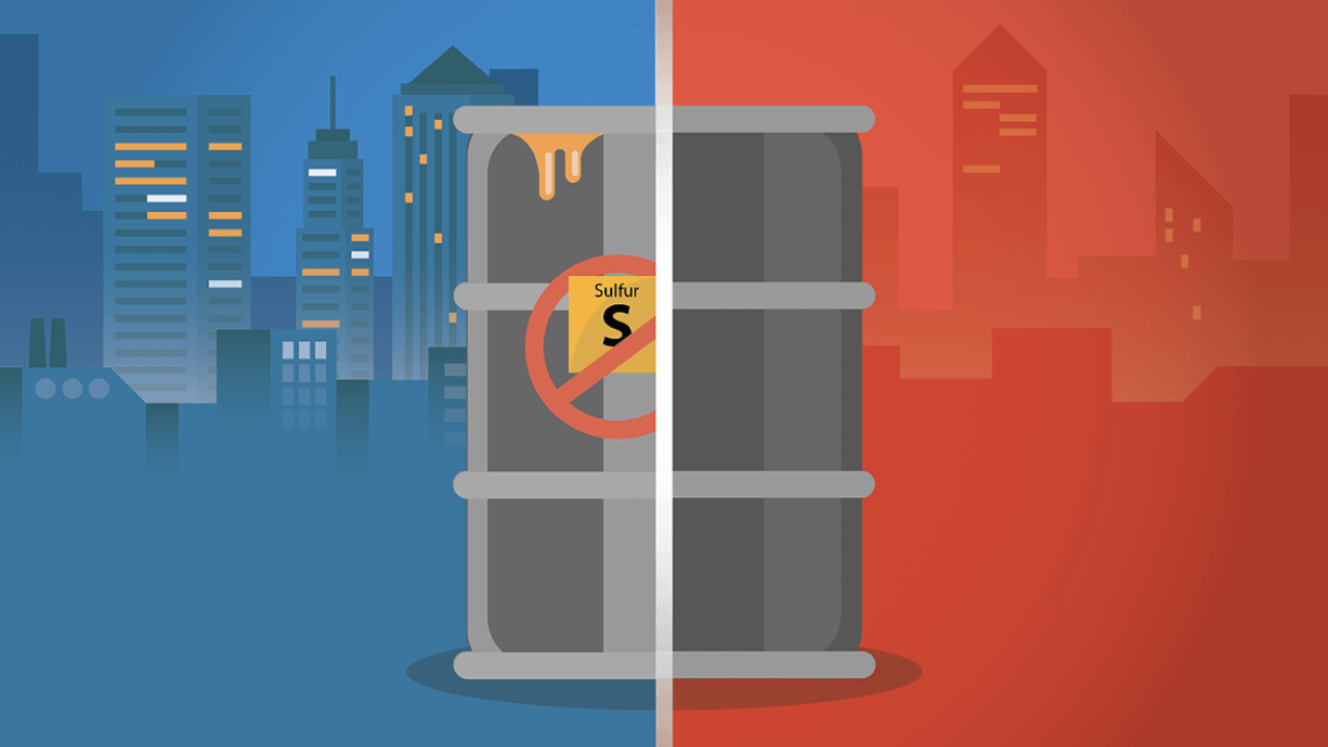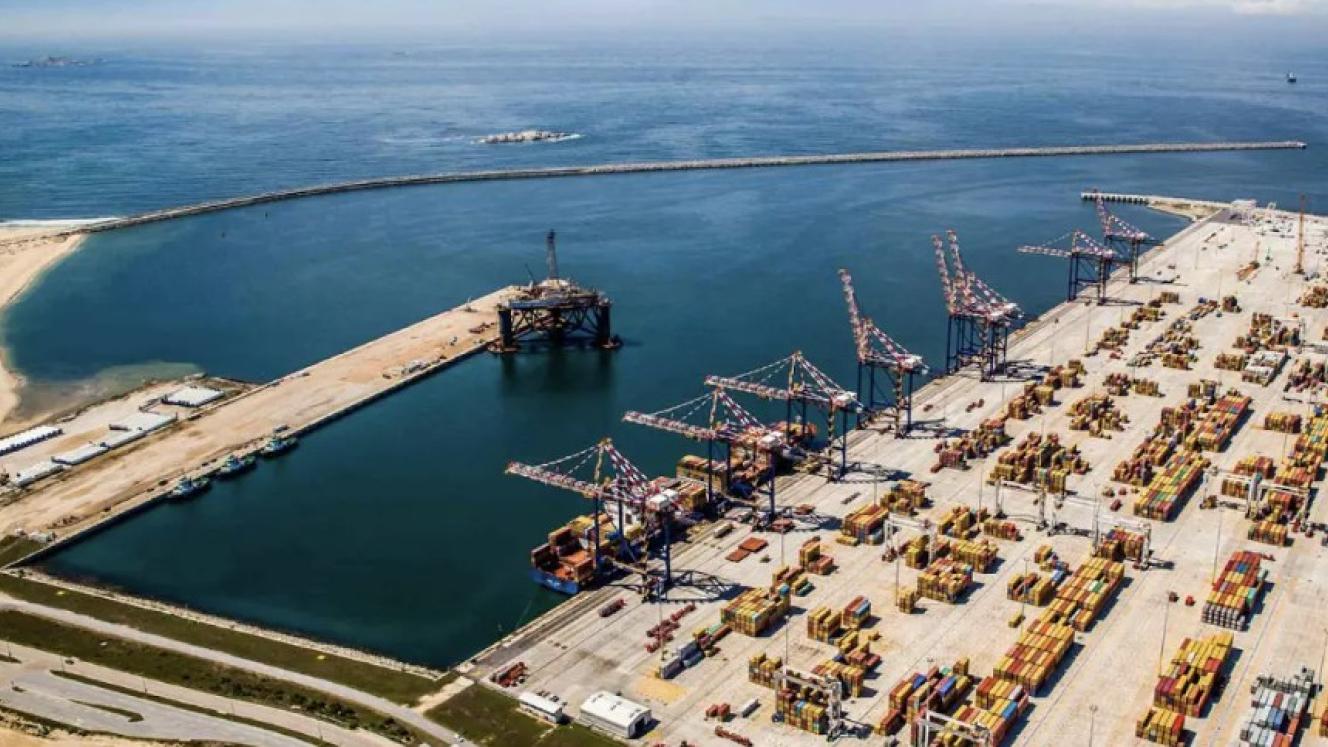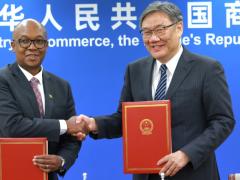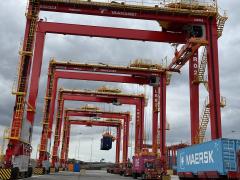The Mediterranean Sea is fast approaching a deadline to reduce bunker fuel sulphur limits required by the International Maritime Organization (IMO).
Nearly a year ago, the Mediterranean Sea was designated as an Emission Control Area (ECA), but in order to maintain this status, very low sulphur fuel oil (VLSFO) will have to virtually be eliminated from vessel fleets in the region.
Rystad Energy has estimated that ultra-low sulphur fuel oil (ULSFO) will dominate the Mediterranean Sea moving forward, should the IMO’s requirements be met.
Rystad Energy Vice President for Commodity Markets Analysis, Valerie Panopio, said in an oil market update on Tuesday that the inclusion of the Mediterranean Sea in the existing ECA zones meant vessels operating in the Mediterranean Sea must reduce sulphur limits to 0.1% from the previous level of 0.5% by 1 May 2025. This is significantly lower than the current global limit of 0.50% outside ECAs.
“We believe that VLSFO will be displaced by ULSFO, marine gas oil (MGO), and high sulphur fuel oil (HSFO), resulting in a reshuffling of bunker fuel flows and optimisation of vessel fleets,” said Panopio.
“We believe that this regulation of bunker fuel will result in a surge in compliant fuel demand, particularly in MGO. This will fill in any expected gaps and encourage more flow of MGO from Northwest Europe to the Mediterranean and ultimately from the US and the Middle East.”
The rerouting of fuel flows would open an arbitrage of VLSFO from Europe to the East of Suez, catering for Asia’s shortage and depressing VLSFO cracks in the short term, he added.
“Tighter emission controls in the Mediterranean will force vessel operators to revisit strategies on fuel supply and fleet routes, investment in exhaust gas cleaning systems, or scrubbers, and exploration of alternative fuels.”
He said vessels plying the Mediterranean had the following options to respond to the tighter emission standards:
• Complete switching to 0.1% sulphur bunker fuel such as ULSFO or MGO
• Use of separate fuels, depending on prevailing regulation
• Retrofitting with scrubbers
• Exploring alternative fuels such as liquefied natural gas, biofuels, hydrogen
• Bypassing the Mediterranean
“These options come with their own challenges. Ships fitted with open-loop scrubber systems need to adhere to local regulations on the discharging of their scrubber wash water,” Panopio said.
In addition, the use of separate fuels requires intensive crew training to ensure proper segregation and flushing procedures are followed to avoid stability issues and cross contamination.
In the past year, vessel traffic via the Mediterranean Sea has reduced – a consequence of the sporadic Houthi attacks along the Bab-el-Mandeb Strait.
Rystad Energy’s analysis found that in the first four months of 2025, large tankers such as very large crude carriers and Suezmaxes (a type of medium-sized oil tanker that can transit the Suez Canal fully loaded) comprised only 10% of vessels using the Mediterranean.
“Vessels opt for the longer Cape of Good Hope route over the lofty risk premium of taking the Red Sea route. This indicates that the majority of the ships operating in the region are smaller vessels that are most likely already using MGO as fuel,” he said.
MGO bunkering has already been on the rise, signalling a likely increase in use of this fuel as regulations tighten.
Based on bunkering data from the Port of Rotterdam, MGO bunkering has increased by 67 000 barrels per day (bpd) from the third quarter of 2024 to the first quarter of 2025, while VLSFO dropped by 48 000 bpd in the same period.
The capability to produce ULSFO in the region, and in the broader European continent, is limited by a lack of refining complexity.
ULSFO may be imported from other regions such as the Middle East into entry and exit points of the Mediterranean, such as the recent ULSFO deliveries from the UAE to Türkiye.
“Additionally, Rystad sees HSFO demand to be steady with potential upside as economics heavily favour the use of scrubbers over the more expensive ULSFO, leading to a slow but steady rise in availability of scrubber-fitted vessels,” said Panopio.













